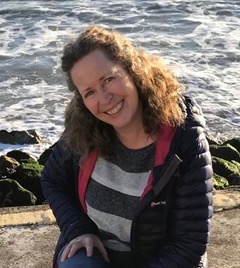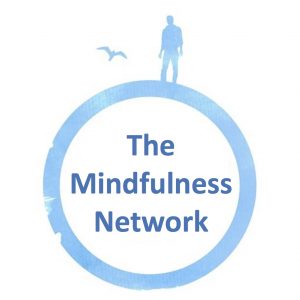
~ Written by Ali Lambie – a Mindfulness Network registered supervisor offering individual supervision for mindfulness teachers and one of our compassion leaders, specialising in Mindful Self-Compassion ~
“Admit something:
Everyone you see, you say to them, ‘love me’
Of course you do not do this out loud, otherwise someone would call the cops.
Still, think about this, this great pull in us to connect”
– Daniel Ladinsky inspired by the words of Hafiz (14th century Persian mystic)
What happens when you read those words? Do you recognise that you too experience this ‘pull to connect’? We are innately social beings who generally have a strong need for connection and relationship. There’s a sense in which we’re born with the wish to be connected and cared for, ideally to be loved. Human infants are incapable of doing much for themselves so when we are nurtured by an adult, our needs for food, clothing, shelter and touch can be met. As we grow up and become adults ourselves we also still have this pull to be loved and accepted by others to survive and even to thrive – we need connection with others to co-operate, collaborate, engage in community of various sorts, to raise children, to protect ourselves and others from dangers. So generally, as we go about our lives, we want people to like us, to accept us, we want to belong and to be well thought of.
Sadly however we all too often don’t feel worthy of being loved or accepted in some way. We suspect that if people ‘really knew us’ they might find us, or an aspect of us, unacceptable in some way and our connection or belonging would potentially be threatened. This is the territory of shame, and it is recognised as a universal human experience. To greater or lesser degrees and at different times we all experience feelings of shame.
Shame can come from a variety of sources and may be experienced more strongly by those of us who, for example, grew up in a critical household, an unequal social or political system, who experienced childhood neglect, abuse, or bullying, who have an identity or identities that are marginalised in mainstream culture, who feel intergenerational shame from the history of our ancestors and so on. Yet we often take on and internalise the effects of these experiences as though they are definitions of who we are – they become ‘negative core beliefs’ that we hold about ourselves. Have you ever believed that deep down you’re inadequate in some way, that you’re a failure or a fraud, that there’s something wrong with you, that you’re flawed or simply unlovable?
These kind of beliefs about ourselves can surface from time to time, perhaps triggered in specific contexts, or can be our regular companions, perhaps lying just a little below the radar in our day to day lives. And of course the last thing we want is for others to know about them – because if they knew, it they found out how we ‘really’ are they might not think so well of us, or ultimately might not want to know us. We fear that the connection and belonging that we so fundamentally need might be threatened or even ruptured completely. So we keep our shame secret. Shame is maintained by silence: ‘you are only as unlovable as your secrets’.
When I first engaged in Chris Germer and Kristin Neff’s Mindful Self-Compassion (MSC) programme and explored this territory, I was shocked to discover that I had been carrying an ancient and completely secret belief that I was somehow dangerous, that I had no ‘moral compass’, that others might come to harm if they got too close to me. (Which is interesting to discover for a long time therapist and mindfulness teacher!) I was dimly aware of this but it was more a felt sense rather than something fully realised in awareness – but I began to see how painful and limiting it was to live with this belief nestled quietly yet persistently in my sense of self. In my early years I was brought up in a tightly circumscribed family and social context to be a ‘good girl’, to comply, to achieve, to behave well, to not make a fuss or stand out. Well, one day in the infant school playground – the infant school where I was such a good girl that I was ‘monitor’ with responsibility for watering and tending to all the headteacher’s plants which adorned her office and the school corridors – I lost my temper with a boy who was irritating me greatly and I got too rough in a game we were playing which ended with him flying across the playground and getting grazed knees and hands. Everyone was very shocked and I was definitely in trouble for behaving in such an unkind and unacceptable way. As this event came back to me I realised that I didn’t only believe that I’d done something wrong, but much more painfully, that there was something wrong with me for having done that thing. (Guilt says ‘I made a mistake’, Shame says ‘I am a mistake’, – Brene Brown.) It was completely unacceptable, outside of anything that was expected of me or anyone decent who knew the parameters of how to behave or relate to others. I had no moral compass. I was dangerous. Then as I explored this newly dawning awareness my mind readily offered up other evidence from my life which corroborated this ‘truth’ about me.
Compassion is uniquely placed to support us in transforming and healing the sometimes crippling effects of shame because compassion is focussed not so much on the experience itself but on the person experiencing the distress. It is an impulse to ‘meet’ that person with kindness aimed at alleviating their suffering. When our sense of self is under attack (there is something secretly and irrevocably wrong with me), we need self-compassion for having that experience.
Self-kindness can counter the self-judgements of shame. Gradually connecting with others around this and also learning that this is a universal experience can help us counter feelings of isolation as we finally discover ‘it’s not only me who feels this way’. And mindfulness can counter the tendency to over-identify with our behaviour and perpetuate negative beliefs about ourselves.
Through conceptual material, guided practices, and exercises, Mindful Self-Compassion helps us build the resources to meet, explore and transform the doubt, self-criticism and shame that is so often carried over a lifetime as part of our sense of ourselves.
To little by little bring these deeply private and personal negative core beliefs into the light of day requires tender and sensitive handling. To understand something of how they arose and what might be fuelling them, to realise the consequences of having lived with the often silent and secret pain of dwelling in unworthiness can be met with deep and tender self-kindness. It invites us to navigate the challenging yet ultimately liberating territory of exploring our own fears that we’re not acceptable, or worthy of belonging. The three components of Mindful Self-Compassion training (mindfulness, common humanity and self-kindness) furnish the healing context in which we can gradually and safely bring these deep and secret fears into the light of day, transforming and loosening the grip they have on our sense of who we are and how we might belong.
“As we learn to bear the intimacy of scrutiny, and to flourish within it, … fears which rule our lives and form our silences begin to lose their control over us”
– Audre Lorde
Explore the topic of Shame further with a free online workshop offered in collaboration with the Mindfulness Network Community Friends. Anyone who has an established mindfulness practice is welcome.
This event is free to attend. We welcome all donations via the application form and encourage you to consider a contribution, large or small, which will make a big difference in helping us widen access to mindfulness-based approaches.
Donation event: Shame – meeting and transforming shame through the eyes of self-compassion
When: 21 Jul 2022, 7 – 8.30pm UK time (BST British Summer Time)
Where: Online Event
Tutors: Ali Lambie, Caroline Hoffman
 Ali Lambie, 2022
Ali Lambie, 2022
Ali is a registered mindfulness-based supervisor with the Mindfulness Network – you can read her supervisor bio here and visit our website to find out more about arranging supervision: https://supervision.mindfulness-network.org/
See a full list of MSC supervisors. Many supervisors also offer additional specialisms.
Mindful Self-Compassion Events and Retreats
The Mindfulness Network offers MSC Retreats and Weekends which can be booked via our CALENDAR. For more information and FAQs on compassion-based approaches, visit our website: https://compassion.mindfulness-network.org/
Mindful Self-Compassion Teacher Training
In the UK, MSC Core Skills and Teacher Training is delivered through our colleagues at the Sussex Mindfulness Centre. Visit their website for more details of the Face to Face: Mindful Self-Compassion Teacher Training in November, led by Ali Lambie and Zoe Shobbrook-Fisher.




